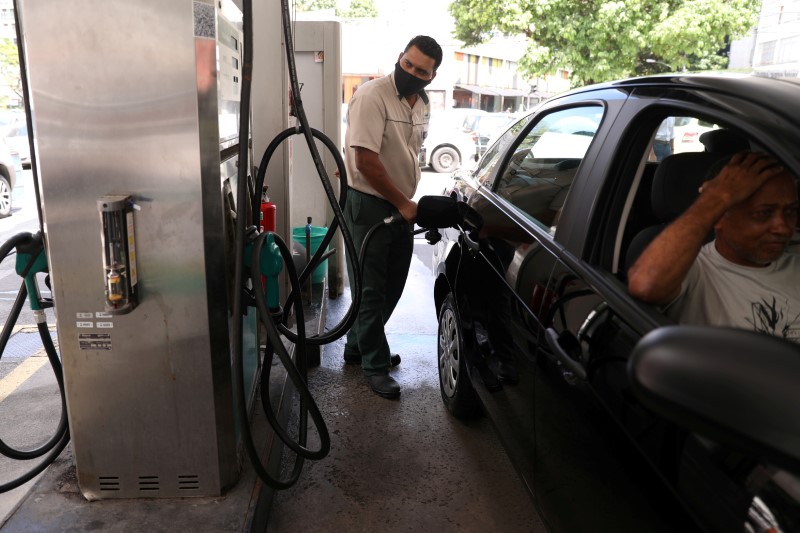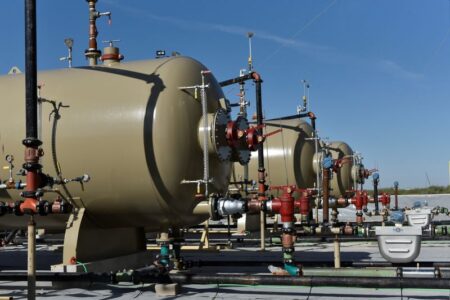By Laura Sanicola and Shariq Khan
(Reuters) – U.S. motorists hoping to squeeze out one last trip before the Labor Day holiday and school begins are finding pump prices that have surged to their highest level this year on tighter gasoline supplies.
Consumers tend to get a break from steeper fuel costs as peak vacation travel ebbs. But strong demand and a series of refinery outages have pushed the national average retail price to $3.86 per gallon on Tuesday, according to the American Automobile Association – 7% higher than a month ago. In California and Washington, prices have surged above $5 a gallon.
National retail gasoline prices will average $3.90 a gallon this month, predict analysts at Goldman Sachs (NYSE:).
Martin Jones, a vacationer from Massachusetts, filled up his Toyota Corolla during a sightseeing trip to Washington, D.C., on Tuesday. Jones said he was relieved prices were not close to the $5 a gallon level of last summer.
“Or I won’t be able to make long drives like this as easily,” Jones said.
Retail prices in the U.S. Midwest jumped as much as 21 cents a gallon in Ohio and 16 cents in Michigan in the last week on earlier-than-expected maintenance at a BP (NYSE:) refinery in Whiting, Indiana.
Irving Oil’s 320,000-barrel-per-day oil refinery in New Brunswick (NYSE:), Canada, and Delta’s 185,000-barrel-per-day refinery in Trainer, Pennsylvania, will be down for much of September and part of October, affecting about 9% of the product supplied in their regions.
BELOW-AVERAGE STOCKS
“It is fairly abnormal to see prices going up” at this time of the year, said Patrick De Haan, head of petroleum analysis at price tracker GasBuddy.com. “We tend to see prices declining going into the fall.”
Weekly U.S. gasoline stockpiles have remained below the five-year average of inventories throughout this year, setting the stage for price spikes if refining capacity is disrupted. Total U.S. gasoline stocks this month fell to 216.4 million barrels, the fifth decline in six weeks, according to U.S. government data.
At the same time, record heat levels in Texas have likely led to a sharp 2% slump in U.S. refiners’ product yields over the past few weeks, Goldman Sachs noted on Sunday. Small changes to the yield often add up to a meaningful decline in product availability, the bank added.
Peak hurricane season is still ahead with the U.S. National Oceanic and Atmospheric Administration (NOAA) last week raising its outlook for storms due in part to record warm sea surface temperatures. Hurricanes can result in damage to or closures of U.S. oil refineries, particularly along the Gulf Coast.
(This story has been corrected to change the holiday to Labor Day from Memorial Day in paragraph 1)
Read the full article here












